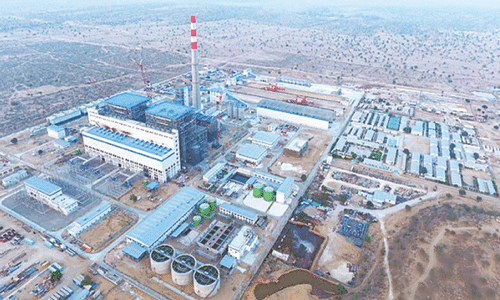ISLAMABAD, April 8: A new World Bank-IMF report on Tuesday warned that most countries in South Asia would fall short of targets fixed in line with the Millennium Development Goals (MDGs) -- a set of eight globally agreed goals to be achieved by 2015.
Launched at the half way point to 2015, the Global Monitoring Report 2008 called upon the international community to help the world get back on track by recommitting to the development goals and redoubling efforts to achieve them.
Though much of the world, including South Asia, might cut extreme poverty in half by then, prospects were gravest for the goals of reducing child and maternal mortality, with serious shortfalls also likely in primary school completion, nutrition and sanitation goals.
In this year of “Action of the MDGs”, there were concerns about the risk of failing to meet the goal of reducing hunger and malnutrition, the “forgotten MDG”, the report said.
Lead author of the report, Zia Qureshi, currently senior adviser to the Office of the Chief Economist and senior vice-president of the World Bank, said: “The outlook is quite positive in poverty reduction in the South Asia region. But the region is likely to be seriously short in some areas, including primary education, gender parity and child mortality goals.
“South Asia will likely not reach the goal of halving malnutrition rates. Countries like Bangladesh, India and Pakistan also lack in human development.”
Declaring low-lying Bangladesh to be hardest hit by floods and rise in sea level, the author warned that agricultural countries such as India and Pakistan were also most vulnerable to climate change. In a comprehensive overview, the report touched upon declining aid to developing countries to meet MDGs and environmental concerns.
It stressed on sustaining growth momentum which would decline from 4.9 per cent in 2007 to 3.7 per cent in 2008; 40 million more children were in school and gender disparity in primary and secondary schools had declined by 60 per cent but 75 million children remained out of schools and a third of the developing world’s population -- 1.6 billion people -- lacked access to modern energy and were forced to rely on carbon-emitting biomass and fossil fuel energy.
The report said that although three million more children survived and two million lives were saved by immunisation, every week 10,000 women still died from treatable complications of pregnancy and birth and over 190,000 children under five were lost to diseases.
An area of forest equivalent to the size of Panama or Sierra Leone was lost every year to land use changes, with most of the loss concentrated in Latin America and Sub-Saharan Africa.
However, the report laid out an integrated six-point agenda, with strong inclusive growth at the top. It called for more effective aid, strengthening programmes in health, education and nutrition and financing and technology transfers to support climate change mitigation and adaptation.















































Dear visitor, the comments section is undergoing an overhaul and will return soon.